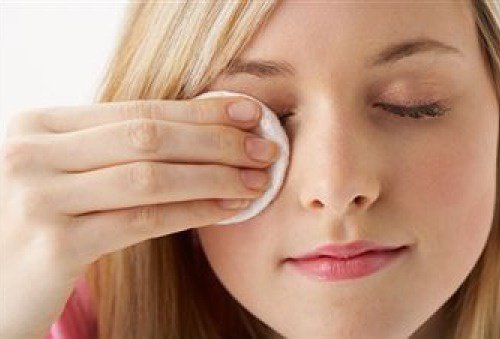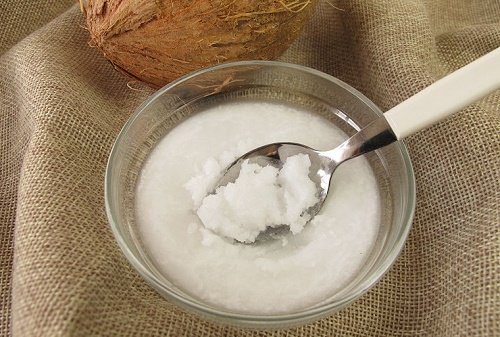How to Cleanse Your Face With Natural Oils

If you want radiant and perfect skin, you need to take care of it. One of the best beauty secrets is one that’s often forgotten: cleansing your face with natural oils. Natural oils not only hydrate and cleanse your skin deeply, but they also act as a natural makeup remover and they’re suitable for all skin types.
You might like: What You Need to Know about Vitamin C Skin Products
Natural oils offer all of the benefits you could want in a product for the skin on your face. The best thing is that they’re a very affordable option, and they’re easy to use.
We know that many people are afraid that cleansing your face with natural oils will increase how oily your skin is. However, this is not true.
Contrary to what you might think, natural oils aren’t just for dry skin. They can also be used on combination and oily skin.
Which natural oils should you use?

It’s very important to remember to use vegetable and essential oils. These are the best ones for taking care of your skin.
Also, you need to make sure that they are as natural as possible. There are commercial versions that have been overly processed, which reduces the strength of their properties considerably.
On the other hand, be careful to avoid mineral oils because they aren’t good for adult skin.
Among natural oils, there is a large variety that you can enjoy, but the best ones for the face are:
- Coconut
- Olive
- Castor
Additionally, you can also enjoy the benefits of tea tree oil, almond oil, or even mix them. Be sure that if you’re using a concentrated essential oil that you dilute it first with an oil that isn’t an essential oil, such as coconut or olive oil.
Moreover, if you don’t dilute essential oils, they will smell too strong and may even sting or cause an adverse skin reaction.
You might like: 5 Essential Oils And Their Benefits
How do you use natural oils?
Based on the characteristics of each skin types, you should cleanse your face with natural oils in a certain way.
- For dry skin, use them on a daily basis as a cleanser or makeup remover for hydration.
- If you have normal or combination skin, don’t use oils more than 3 times per week.
- For oily skin, only use natural oils once a week at the most.
Furthermore, you can also remove even the heaviest makeup with these natural oils. In addition, you can use it as a moisturizer for your skin after sun exposure, when it’s the driest. To do this, you only need to apply a few drops of your favorite oil to a cotton cloth. Then, gently clean the area.
The properties of natural oils
All-natural oils moisturize and make your skin look brighter and more radiant. However, not all oils give you the same benefits. You may have different needs depending on the time of year or your skin condition. It’s best to choose the oil that best suit your needs:
1. Coconut oil

This is a good oil for sensitive skin. After all, its properties help prevent irritation and inflammation.
2. Olive oil
This helps your damaged skin tissue repair itself quickly. So, it’s recommended for getting rid of cuts, marks, and scars. At the same time, you get hydration and vitamins.
This is a tool for fighting premature skin aging. This is because it helps increase your skin’s natural elasticity for a smooth, firm appearance.
3. Castor oil

This is perfect for increasing blood flow, which helps increase your skin’s elasticity. Additionally, castor oil also helps get rid of bags under your eyes and helps stimulate eyebrow and eyelash growth. If you overplucked your eyebrows for a long time and want them back, you can try applying some castor oil to your eyebrow area.
Recipe for cleansing your face with natural oils
We’ll show you how to remove makeup and cleanse your face during your evening routine. This routine uses natural oils that keep your skin in great condition.
Ingredients
- 4 drops of almond oil
- 2 drops of castor oil
- Cotton pads
Instructions
- Take a cotton pad and put the two drops of almond oil on it.
- Lightly rub the cotton pad over your whole face using smooth, circular movements. Start with your forehead and go down to your cheekbones, cheeks, the outline of your lips, and any other areas going down to your neck.
- Repeat the process again if necessary. Do this until you don’t see any traces of makeup remaining.
- Then, clean around your eyes: take another cotton pad and put 2 drops of Castor oil and 2 drops of almond oil on it.
- Rub this pad on your eyelids until you don’t see any more traces of makeup. Be careful that you don’t get it in your eyes.
- Finally, use your favorite moisturizing cream.
Now you know the benefits of natural oils. You also know how it can meet your skin’s needs and how to use them according to your kind of skin.
The only thing that is left is adding these oils to your regular beauty routine.
You’ll see that in a few weeks, you’ll start to see results. Remember that it’s better to get the most natural oils possible.
You can find them in specialized whole food stores. Avoid the supermarket unless they have organic brands.
All cited sources were thoroughly reviewed by our team to ensure their quality, reliability, currency, and validity. The bibliography of this article was considered reliable and of academic or scientific accuracy.
- Lin, T. K., Zhong, L., & Santiago, J. L. (2018). Anti-inflammatory and skin barrier repair effects of topical application of some plant oils. International Journal of Molecular Sciences. https://doi.org/10.3390/ijms19010070
- Nevin, K. G., & Rajamohan, T. (2010). Effect of topical application of virgin coconut oil on skin components and antioxidant status during dermal wound healing in young rats. Skin Pharmacology and Physiology. https://doi.org/10.1159/000313516
- Viola, P., & Viola, M. (2009). Virgin olive oil as a fundamental nutritional component and skin protector. Clinics in Dermatology. https://doi.org/10.1016/j.clindermatol.2008.01.008
This text is provided for informational purposes only and does not replace consultation with a professional. If in doubt, consult your specialist.








